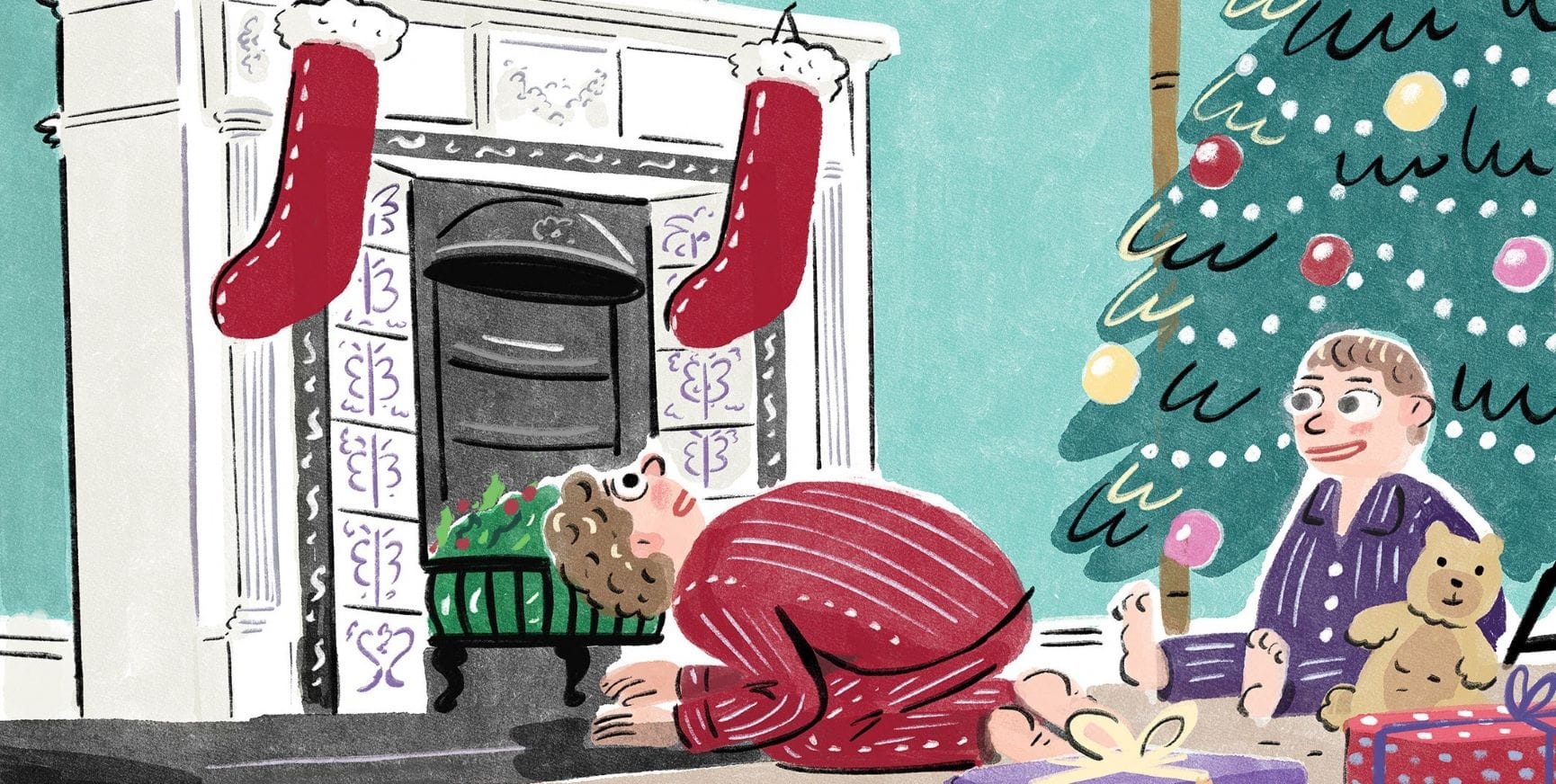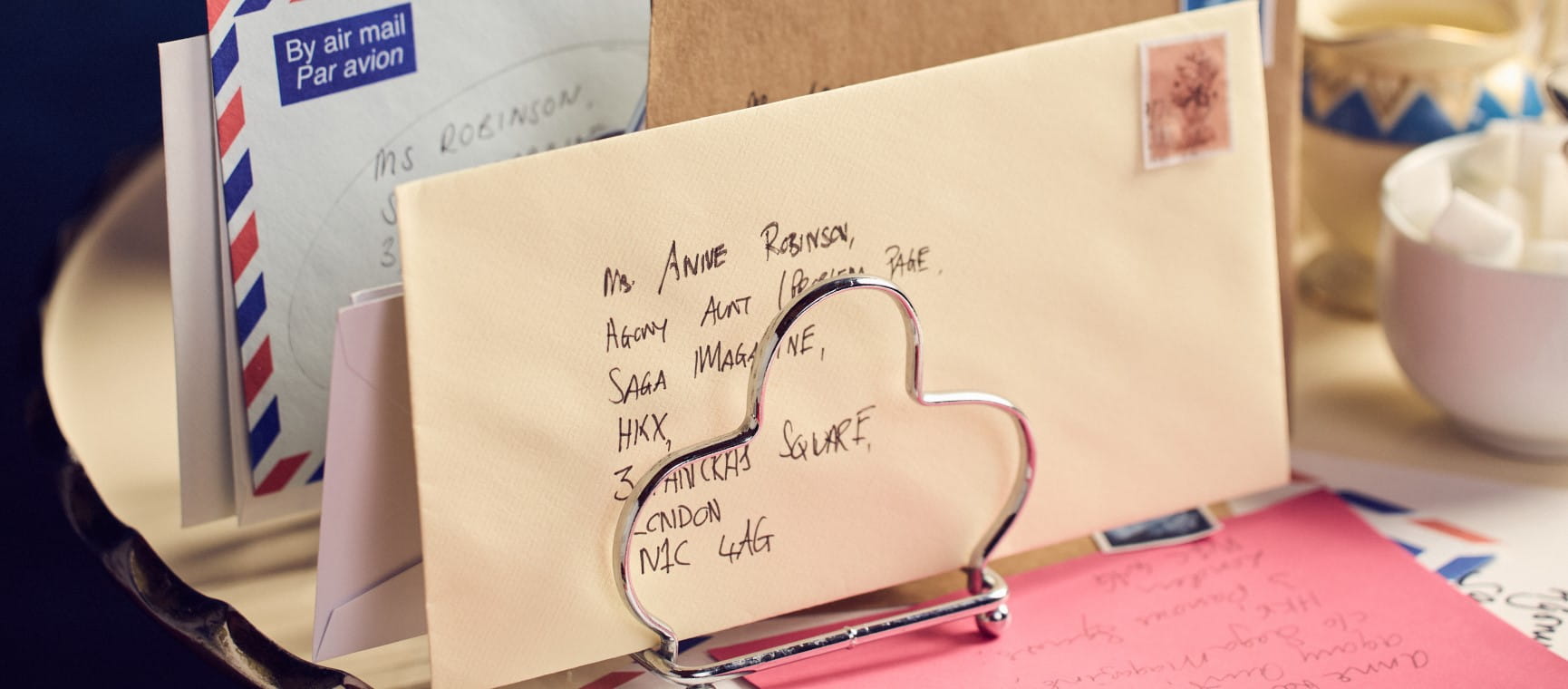
My plan was not to mention the word ‘Christmas’. Indeed, I embarked on a completely different topic this month, only for the esteemed and saintly editor to politely raise her objections.
‘I’m not a Christmas kind of person,’ I said.
‘That’s fine,’ said Louise. ‘Many of our readers might feel the same way.’
The problem is that one does not want to come across as Scrooge. Or appear ungrateful for life’s blessings. And why rain on other people’s festive parades?
For my oldest grandson, who will be four in March, this will be his first conscious Christmas, complete with the magic of Santa coming down the chimney; reindeer waiting patiently on the roof; a tree laden with presents; holly draped over pictures on the wall, mistletoe.
The last thing he wants (while his younger sister will just be happy playing with the sea of wrapping paper) is grumpy old gramps putting a brave face on the festivities while longing for them to be over.
But, of course, it goes deeper than that. My father was a devoutly Christian man in a non-evangelical sort of way (he would kneel by his bed in prayer every night) but was troubled by Christmas.
It wasn’t the commercialism (I noticed John Lewis began displaying its trees this year at the beginning of October) that got to him, rather the knowledge that for millions of people, Christmas is a lonely time of year.
If you are bereaved, the sorrow is palpable; if you are newly divorced and have children, the hurt rises to the surface; if for some reason you are estranged from any members of your immediate family, the pain can be excruciating.
Everything is accentuated at Christmas. The juxtaposition is that the birth of baby Jesus is meant to herald the start of something new but for many it means looking back with a degree of regret. And, let’s face it, how many of us are really comfortable about all the extravagances of Christmas when we know that people in many parts of the world are struggling just to survive?
Funnily enough, my son Henry, who is now in his late thirties, chose to opt out of Christmas when he was younger. Instead, he spent the day helping out at a shelter for the homeless. So, perhaps, there’s a hereditary element to all this: Christmas either runs in your family or it doesn’t.
But there’s one annual tradition that I enjoy and take seriously, although it’s almost alien to my children: the sending of Christmas cards.
I like this because it is a chance to remember people whom one might not have seen all year but who are still in our thoughts. Or those people who need a little cheering up.
Christmas cards take time and effort. For me, there is a golden rule about buying cards with a religious theme – and nothing bothers me more than people who send out cards showing a picture of their own family. It’s like drinking Champagne out of a teacup – just not right.
Then there’s a chance to write a personal message in the card, nothing verbose, but heartfelt. After which, there is the expense of buying a stamp (now 85p for second class) and, finally, posting the card in a letter box.
I may send my grandchildren a card this year, even though I might be spending the actual day with them. Plant a seed.
Sending cards to Saga readers would prove difficult, but I am grateful to Louise for changing the theme of this column and giving me a chance to say a very happy Christmas to one and all.
Our columnist Mark Palmer is a Fleet Street veteran. Currently, he works at the Daily Mail and Mail on Sunday. He still plays six-a-side football but not very well.
View author page
Every issue of Saga Magazine is packed with inspirational real-life stories, exclusive celebrity interviews, brain-teasing puzzles and travel inspiration. Plus, expert advice on everything from health and finance to home improvements, to help you enjoy life to the full.

The ultimate guide to Saga Puzzles, full of technical tips, tricks and hints.

With the start of the new financial year on 6 April, our money expert explains the changes to your pension, benefits and taxes.





